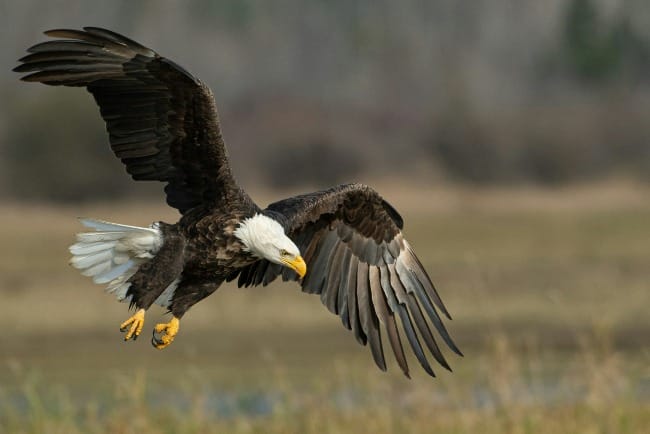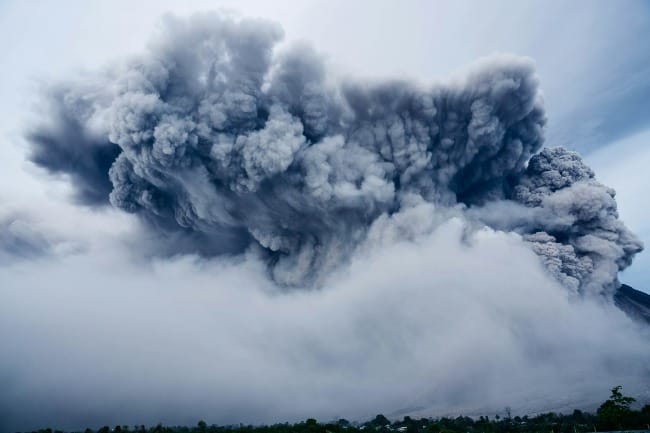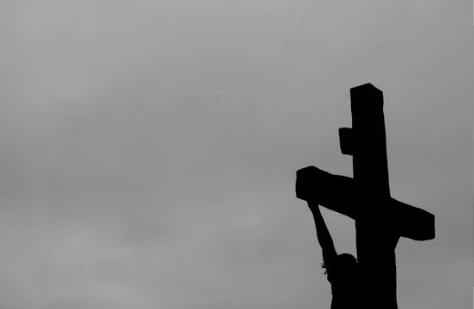Here is the eleventh installment of our Exodus series. If you want to take a minute to read Exodus 19, click HERE. And if you missed the last column in this series, click HERE. As always, we will walk through the text and highlight aspects that are not typically noticed, and then conclude with a few themes for ecological discipleship. Thoughts and comments are welcome. - James.

The Turning Point
As the people set up camp at the foot of Mount Sinai, I imagine Moses looking around and remembering how God had appeared to him on this very mountain and sent him to Egypt on a crazy mission to confront a powerful regime that wanted to kill him and to lead a people who had not asked him to do so. I imagine Moses remembering what God had said to reassure him: "I will be with you. And this will be the sign to you that it is I who have sent you: When you have brought the people out of Egypt, you will worship God on this mountain." How improbable it had seemed - yet here they are! I imagine Moses taking a few moments, before the next crazy adventure began, to laugh at the wonder and sheer audacity of it all.
The story tells us that "on the third new moon after the Israelites left Egypt - on that very day - they came to the Desert of Sinai." This emphasis on timing seems important to me. There is a theme in the Bible about new things emerging on the third day/week/month. It seems to me that the narrator is indicating to us that something significant is about to happen that will be a marking point in God's liberating work of new creation.
Whether or not the timing is significant, this story is certainly a turning point for Israel. Egypt is far enough behind them, geographically, culturally, and spiritually, for God to turn their attention to the future. They've been freed from Egypt - now we begin to see that they have been liberated for a special purpose.

The Invitation
God tells Moses that he is inviting Israel into a new dimension of their relationship. Moses is to remind the Israelites of how God "carried you on eagles' wings and brought you to myself" - a beautiful image that weaves tremendous power, nurturing care, and intimate relationship into a tapestry that preserves the divine initiative behind Israel's liberation. It is from this liberating, loving, and unconditional relationship with the people that God invites Israel into something deeper.
"Now, if you obey me fully and keep my covenant, then out of all nations you will be my treasured possession. Although the whole earth is mine, you will be for me a kingdom of priests and a holy nation."
The conditional nature of this invitation does not qualify or threaten to undo Israel's liberation from Egypt. God is not going to send them back if they say no. Liberation from oppression should never be conditional! The invitation does, however, root their vocation from here on out in ongoing obedience, which makes logical sense. Free people are free to choose the path they travel. If Israel does choose to follow God's ways, they will stand out among all the nations like a freshly polished pearl.
It is important to note that this vocational invitation is connected to God's declaration that "the whole earth is mine." This helps us understand what it means to be a "kingdom of priests and a holy nation. By following God's ways, Israel will be set apart, called to be a human extension of God's liberating purposes for whole community of creation. Despite having very little notion of what this will entail, the people respond to this invitation with a resounding "yes."

The Theophany
The awesome theophany (God-appearance) that follows the invitation has a lot of similarities to Moses' encounter with God in Chapter 3. Both are on Mount Sinai, are mediated through the created world, imbue the physical space with holiness, require specific acts that acknowledge this holiness, involve direct divine speech that calls the hearers to a specific task, and fundamentally transform the hearers. Both are also one-time, extraordinary events that are meant to shape and direct the rest of the hearers' lives.
God prepares to come to the people "in a dense cloud," protecting them from an unmediated experience of the divine, which could apparently have mortal consequences. The people prepare for the meeting by washing their clothes and setting a safety perimeter around the base of the mountain. I am reminded of a passage in The Chronicles of Narnia, when Lucy asks if the great lion Aslan is safe. "'Safe?' said Mr Beaver...'Who said anything about safe? 'Course he isn't safe. But he's good. He's the King, I tell you.'"
The third day dawns with thunder, lightning, and a very thick cloud covering the mountain. God descends in fire and smoke, and both mountain and people tremble. The wild, untamed God of all Creation rests on the mountain as the people wait for the words that will call them to a way of life defined by worship, care, justice, and mercy—all for God's glory and creation's good. We will turn our attention to these words in my next column. But first, here are some themes from this text for our journeys of ecological discipleship.

Meeting the Wild God
This story is a prime example of the tendency of God to meet people outside of controlled, civilized spaces. When I ask people where they sense God's presence most deeply, a significant majority identify woods, mountains, oceans, fields, etc. I think this is because, in these places, we experience our creatureliness in ways that open us up to the created world and our wild Creator. These experiences can be serene and calming, but we need to remain open to moments when God might come to us in a more disruptive fashion. Walter Brueggemann puts it this way:
We have trivialized "mountaintop experiences" as though they are romantic opportunities for religious self-indulgence. This account, against any such domestication, portrays the mountain of holiness as a dangerous meeting place that will leave nothing unchanged.
What might happen if we went into wild spaces open to an encounter with the untamed, wild God?

The Theophanies of Jesus
Moments in the Gospels when it becomes clear that there is more to Jesus than we might expect continue the pattern of theophany we see in Exodus. The Transfiguration is the clearest example, where, once again, there is a mountain, a cloud, divine speech culminating in a call ("Listen to him!"), and human fear in response to being close to such immense power. We also see theophanies of Jesus in the Judean wilderness, in the Jordan River, in and around the Sea of Galilee, on the roads between towns, and on hillsides. Such moments occur rarely in homes, and rarer still in houses of worship.
This pattern emerges as well in the ultimate theophany of Jesus - the Cross - but with several differences. Having been tried in the city, Jesus is taken outside the walls, and lifted up on a cross. There is thunder, thick darkness, and divine speech ("It is finished."). But this time there is no overwhelming power - this is a theophany of powerlessness and sacrificial love. This is the moment we see just how far the wild God of Sinai will go to liberate creation from all the forces that seek to tear it apart.
This theophany does not end with the cross, it continues through the empty tomb, where his disciples come on the third day (there's that number again!) to find angels as bright as lightning, guards filled with fear, and instructions to go to Galilee. The disciples head north and go "to the mountain where Jesus had told them to go" (Matt 28:16). There they meet Jesus, who gives them words, rooted in his role as creation's ruler, that will transform their entire lives: "All authority in heaven and on earth has been given to me. Therefore go and make disciples of all nations, baptizing them in the name of the Father and of the Son and of the Holy Spirit, and teaching them to obey everything I have commanded you. And surely I am with you always, to the very end of the age."
Following Jesus requires a willingness to leave our "comfort zones." It means meeting Jesus, and introducing him to others, outside the city gates, outside the church walls, outside the civilized human environment where so many other voices and values compete for our attention and allegiance. Where might those places be for you?
With you on the Way,
James
Leave a comment below or email me directly at james.amadon@circlewood.online.
Like what you are reading? Consider a one-time gift to our parent ministry, Circlewood, or join our supporter community, The Circlewood Stand. Just $10/month makes a huge difference and makes you part of a growing group of people standing FOR the good of creation and standing WITH Circlewood as we make a difference together. Thanks for considering!